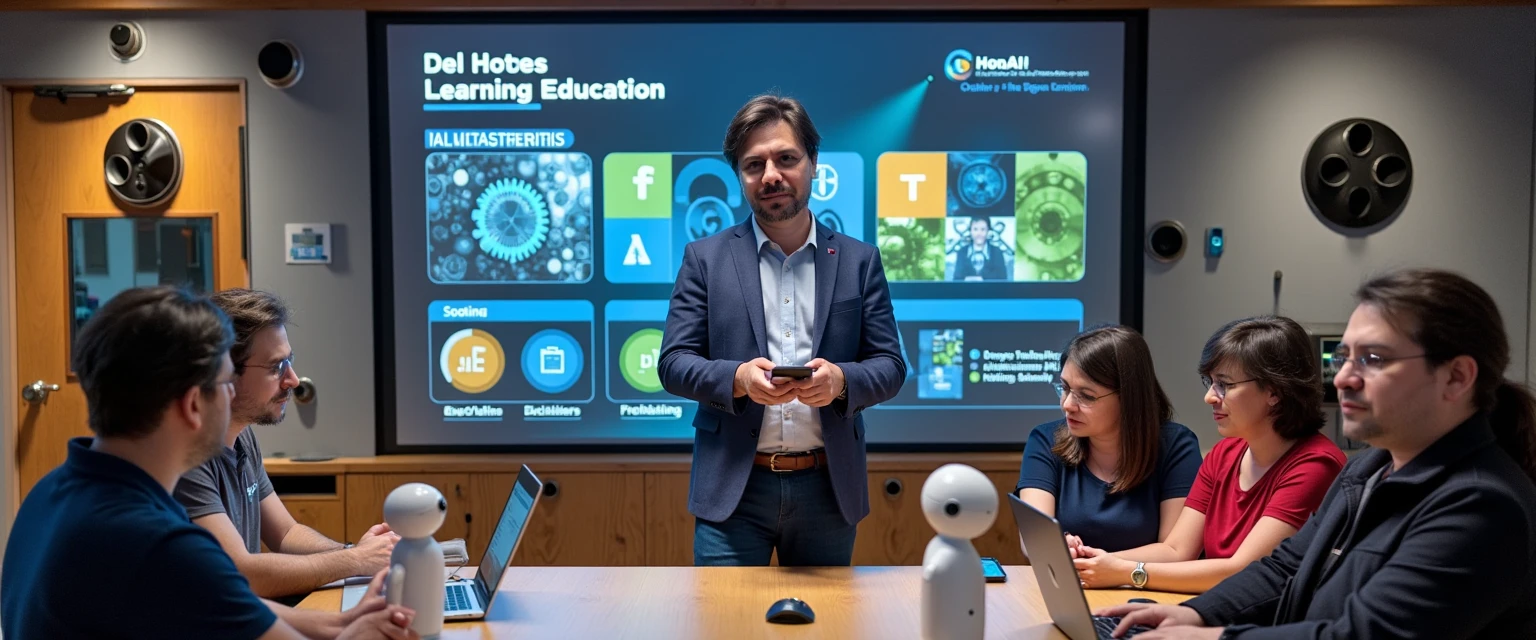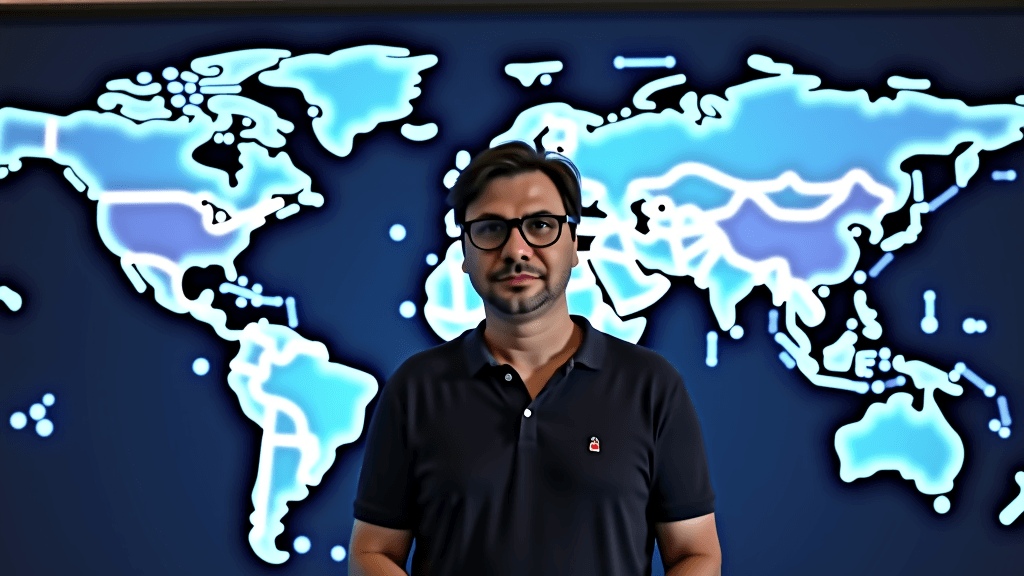New IT Graduates Work in Fast Food While 81% of Brazilians Trust AI - The Paradox That Defines Our Future
August 12, 2025 | by Matos AI

The irony is brutal: while American universities are registering a historic boom in computer science enrollments, newly graduated engineers are working in fast food. At the same time, 81% of Brazilians trust companies that use AI - a rate above the world average.
As someone who has supported more than 10,000 startups over 25 years, I have never seen such a revealing technological paradox. AI is simultaneously creating structural unemployment in one area and generating massive trust in another. And that tells us a fascinating story about the future of work.
The Silent Drama of the Code Generation
The numbers are merciless. Unemployment rate of 6.1% in Computer Science and 7.5% in Computer Engineering, according to the Federal Reserve Bank of New York. Tools that generate code automatically have made junior programmers almost redundant overnight.
Join my WhatsApp groups! Daily updates with the most relevant news in the AI world and a vibrant community!
- AI for Business: focused on business and strategy.
- AI Builders: with a more technical and hands-on approach.
Manasi Mishra, who graduated from Purdue University in 2025, symbolizes this generation. After hundreds of rejections in tech, she can only get interviews outside the sector. The promise of high salaries that motivated her professional choice has turned into systematic frustration.
Giants like Amazon, Intel, Meta and Microsoft have implemented layoffs and hiring freezes. The vicious circle is perverse: candidates using AI to apply, recruiters filtering CVs automatically. The process has become a robotic dance in which humans have lost their leading role.
The Harsh Reality Behind Algorithms
Mo Gawdat, former Google business director, denounces the optimistic official narrative about AI and jobs“They're lying to us about the jobs of the future”. He points out that automation has already replaced thousands of workers in translation and customer service, while companies like Duolingo, Workday and Klarna are facing layoffs due to the advance of AI.
“AI's quest for efficiency puts even senior management positions at risk,” warns Gawdat. It's a criticism coming from within Silicon Valley, from those who helped build these technologies.
But Brazil tells a different story
While this is happening in the US, Brazil has a contrasting reality. 81% of Brazilians trust companies that use AI - a figure that exceeds the world average. NiCE's “Global Happiness Index” study reveals that 41% of consumers report an overall improvement in service with AI.
What strikes me most: Brazil leads the world in willingness to pay for AI-based services. This suggests that our relationship with technology is less one of fear and more one of opportunity.
Brazilian Cases That Show the Way
Pier, a Brazilian insurtech company, uses AI to reimburse 30% of cell phone theft claims in less than a second. With 150,000 customers and a turnover of more than R$ 150 million in 2024, it expects to exceed R$ 200 million in 2025.
The real estate market still in its infancy, but showing potential. Only 19% of Brazilian real estate agents use AI, compared to 85% in the US. But startups like Lastro, with its virtual assistant Lais, achieve up to 60% increase in lead conversion.
In the legal profession, AI changes the profession, requiring new skills - technological literacy, advanced analytical skills and digital ethics. But it allows you to focus on strategic activities such as complex negotiations and ethical dilemmas.
The Paradox That Defines Our Moment
Herein lies the fascinating paradox: the same technology that is throwing American programmers into McDonald's is being embraced by Brazilians as a solution to improve services and generate trust.
Why the difference?
First, timing. Brazil is still on the upward curve of adoption, while the US is already facing the consequences of technological saturation in certain areas.
Secondly, mentality. Brazilians have historically been more adaptable to change. Our cultural resilience makes us less resistant and more creative in adopting new technologies.
Thirdly, opportunity. While mature markets face substitution, emerging markets see complementarity.
The Geopolitical War on Chips Shows the Importance
It's no coincidence that Trump signals openness for Nvidia to sell AI chips to China, for a fee to the American government. Or that China presses for relaxation of export controls on HBM chips.
AI has become a matter of national sovereignty. And as highlights NeoFeed analysis, “China's real advantage in AI cannot be embargoed” - it lies in the massive training of talent from the age of six.
Lessons for Brazil
In 25 years of supporting startups, I've learned that technological crises are always opportunities in disguise. The plight of American graduates teaches us three crucial lessons:
1. It's not enough to know how to program. You need to know what programming. AI generates code, but it doesn't define purpose, strategy or social impact.
2. Soft skills are the difference. Creativity, collaboration, adaptability - the skills I call CACACA - are impossible to automate.
3. Timing is strategic. Brazil has a unique window to position professionals as AI orchestrators, not competitors.
The Future Is Not Substitution, It's Composition
THE Brazilian industry already debating the AI Legal Framework, while events discuss the impact of regulation on economic development. This shows strategic maturity.
The future will not be one of humans versus machines, but of humans with machines. The professionals who thrive will be those who understand this composition, not this competition.
How to Navigate This Transition
For tech professionals:
- Focus on problems, not code. AI solves syntax, you solve strategy.
- Develop a business vision. Understand how technology generates value, not just how it works.
- Invest in communication. Translating technical complexity into business impact is irreplaceable.
- Embrace AI as a tool. Use it to amplify your creativity, not compete with it.
For companies:
- See AI as a talent accelerator, no substitute.
- Invest in upskilling of existing teams.
- Create cultures of experimentation safe with AI.
- Focus on specific use cases before generic strategies.
Brazil's Historic Opportunity
While mature markets face disruption, Brazil can do leapfrogging - skipping stages of technological development. Our high confidence in AI (81%) combined with low corporate adoption (19% in real estate) creates a unique window.
We can train a generation of native professionals in AI-human collaboration, while other markets are still processing the trauma of replacement.
The Paradox as a Competitive Advantage
Today's paradox - tech unemployment in the US, massive confidence in Brazil - is not a problem to be solved, but an advantage to be exploited.
We have the chance to build a Brazilian AI adoption model: more human, more collaborative, more focused on complementarity than substitution.
In my mentoring with startups and companies, I see this opportunity on a daily basis. Organizations that adopt AI as an amplifier of human talent, not as a substitute, are creating sustainable competitive advantages.
The future will belong neither to those who resist AI nor to those who surrender to it completely. It will belong to those who learn to dance with it - keeping humanity, purpose and social impact at the heart of the equation.
And Brazil, with its characteristic resilience and creativity, is perfectly positioned to lead this dance.
✨Did you like it? You can sign up to receive 10K Digital's newsletters in your email, curated by me, with the best content about AI and business.
➡️ Join the 10K Community here
RELATED POSTS
View all



